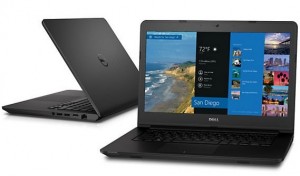Intel announced five new Internet of Things (IoT) pilots and deployments with its ecosystem in Taiwan. The solutions show momentum for IoT adoption for transformation of business and better life experiences. Intel hosted an IoT press conference during Computex Taipei and invited its customers, end users and collaborators to jointly announce deployments, pilots and future expansion plans to make IoT a reality in Asia and elsewhere in the world.
“The IoT is a fast-growing market that presents tremendous opportunity for Intel and our ecosystem,” said Jason Chen, vice president of Intel Sales and Marketing Group and country manager of Intel Taiwan. “Our 35-year history and strong collaboration with the IoT ecosystem in Taiwan is a critical success factor in our ability to scale the Internet of Things, enable business transformation and enhance IoT experiences.”
The press conference featured demonstrations on IoT for buildings, cities, factories, healthcare, manufacturing, retail, agriculture, education and home solutions. The ecosystem demonstrated how end-to-end IoT platforms transform businesses and deliver better experiences.
Intel and Formosa Plastic Corp. (FPC) will deploy Intel’s IoT end-to-end platform for smart manufacturing. This new IoT solution is developed based on Intel technology and FPC FORMOSA-FX DCS (distributed control system) and SIS (safety instrument system) factory automation expertise together with Intel-based gateway from Nexcom, Supermicro’s cloud server, and Cloudera’s big data analytics. The solution will enhance Formosa Plastics’ energy efficiency, environmental manageability, and industrial safety.
The smart manufacturing solution integrates real-time analytics enabling forecasting and monitoring – using big data analysis. This helps operation and maintenance personnel detect possible anomalies in advance to prevent manufacturing interruptions and timely address capacity, environmental protection, and industrial safety issues. As a result, operation costs can be reduced while overall factory efficiency can be increased.
Intel and Fusheng, a top-five global air compressor manufacturer, announced its successful IoT platform deployment and will expand the newly developed services business overseas. To gain better business intelligence, Intel provided an end-to-end Intel IoT Platform and Intel IoT Gateway via ADLINK on Intel Quark processors to connect front-end sensor systems to back-end Intel-based servers. With this, Fusheng is now able to provide value-added services to its customer based on this new system, which enables Fusheng to predict and detect maintenance needs and manage its vehicles’ dispatch. The system allows Fusheng to transform its traditional hardware business to value-added solution services.
Elitegroup Computer Systems (ECS) will also deploy new smart home solutions in Taipei using Intel IoT gateways with Intel Quark processors and Tatung’s Smart Building Management System (SBMS). The system will allow future homes to connect its appliances, Internet infrastructure, entertainment systems and security on a centralized platform enabling homeowners to better manage households that lead to a more convenient life. ECS anticipates it will become one of the first smart home multiunit housing units in Asia, and are looking to expand the solution across Taiwan and other Asia markets in the future.
Intel collaborated with Advantech and Microprogram to scale out YouBike, a smart city bike system to more cities in Taiwan and other countries in Asia. The solution has an Intel Quark processor for the YouBike solution sensor node, Intel Atom processors for the gateway, and an Intel Xeon processor-based server. These integrated components forms an end-to-end system that allows timely auto detection of problems with remote control and data security of the system.
Intel collaborates with Chunghwa Telecom (CHT) to establish the smart city IoT implementation in Taiwan to help improve the quality of urban life. The solution uses the Intel IoT Gateway on a smart city pole system to connect sensors located at street lights or power stands. The gateway is used to manage the data collected for air quality, weather, traffic and power consumption. The system will also connect to a data center for real-time analytics using Intel based servers. The first-phase implementation will start at the end of the year in Taipei.











